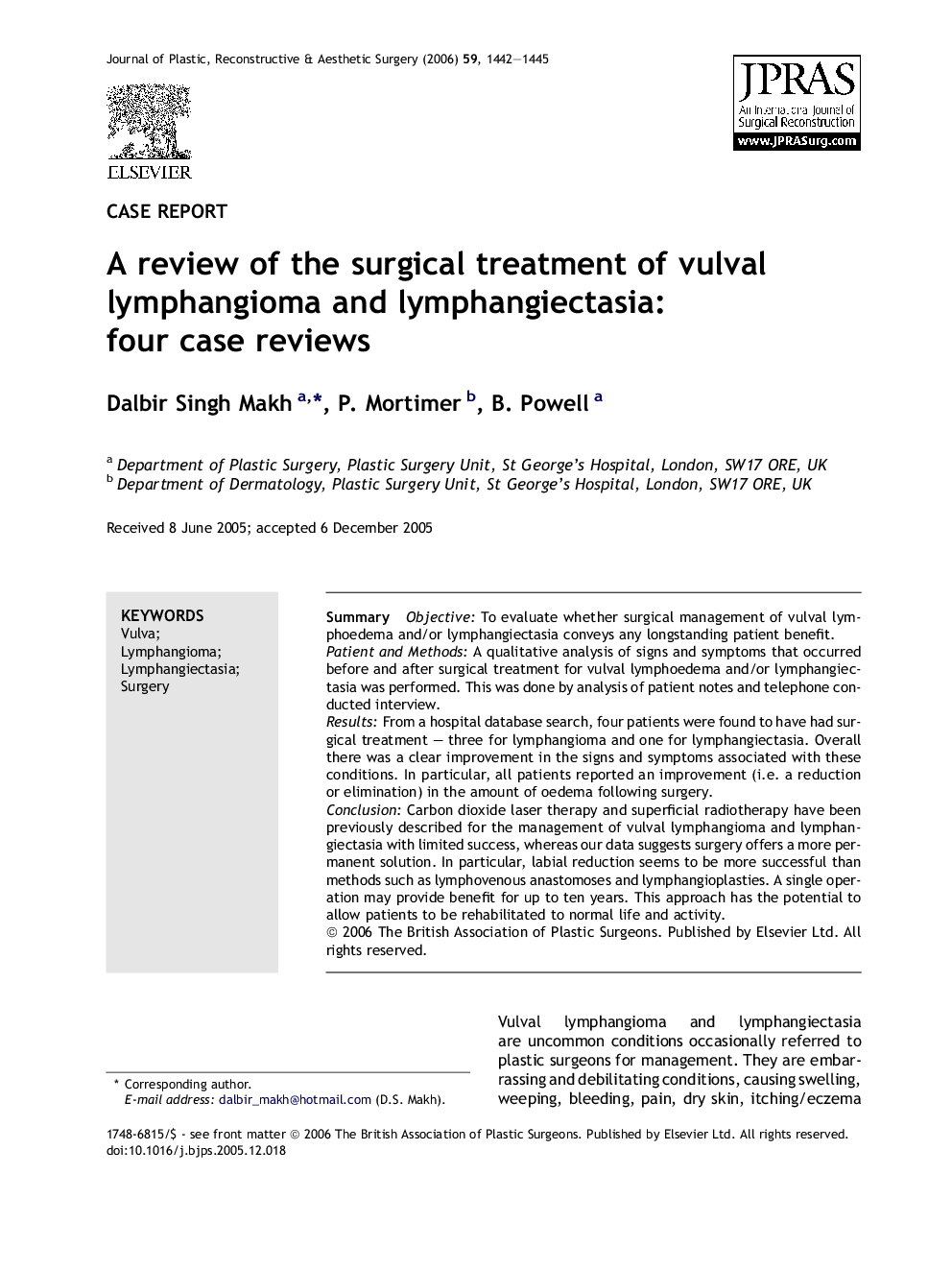| Article ID | Journal | Published Year | Pages | File Type |
|---|---|---|---|---|
| 4121439 | Journal of Plastic, Reconstructive & Aesthetic Surgery | 2006 | 4 Pages |
SummaryObjectiveTo evaluate whether surgical management of vulval lymphoedema and/or lymphangiectasia conveys any longstanding patient benefit.Patient and MethodsA qualitative analysis of signs and symptoms that occurred before and after surgical treatment for vulval lymphoedema and/or lymphangiectasia was performed. This was done by analysis of patient notes and telephone conducted interview.ResultsFrom a hospital database search, four patients were found to have had surgical treatment – three for lymphangioma and one for lymphangiectasia. Overall there was a clear improvement in the signs and symptoms associated with these conditions. In particular, all patients reported an improvement (i.e. a reduction or elimination) in the amount of oedema following surgery.ConclusionCarbon dioxide laser therapy and superficial radiotherapy have been previously described for the management of vulval lymphangioma and lymphangiectasia with limited success, whereas our data suggests surgery offers a more permanent solution. In particular, labial reduction seems to be more successful than methods such as lymphovenous anastomoses and lymphangioplasties. A single operation may provide benefit for up to ten years. This approach has the potential to allow patients to be rehabilitated to normal life and activity.
